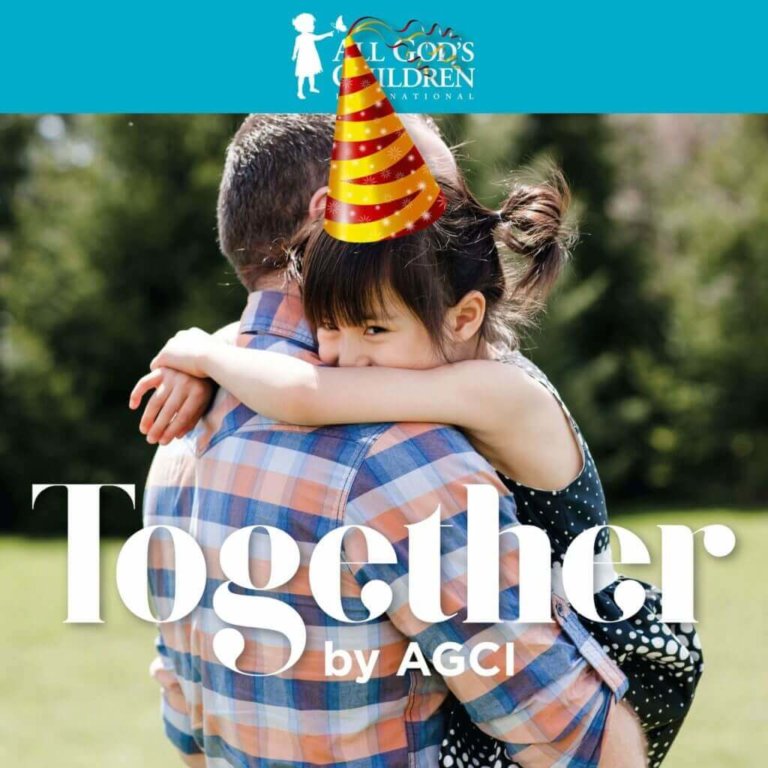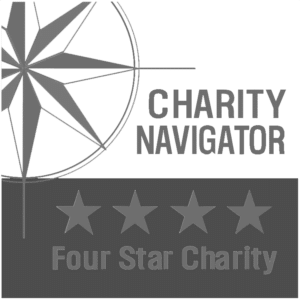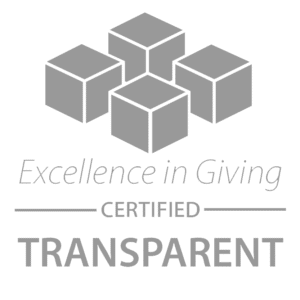You’re listening to together by AGCI. I’m Melissa Rush. And I’m Dayn Arnold.
March 24th 2021, a day that will be celebrated in the history books. Yes, your favorite day and mine… national cheese steak day. Also, it’s the first anniversary of Together by AGCI hooray, I guess, made it for a year. And also it’s national cheese steak day, which is also very important. I know, I don’t know if I’ve even ever had a cheese steak. I probably had one she’s taken my life. So that was a terrible, terrible reference. If we count the two minute intro to the podcast, which came out kind of before the podcast, but we’re going to count it because we want our number to be as high as possible. This right here, what you were listening to at this very moment with your ears is our 29th episode, which really we shoot. We should have really timed this to be our 30th episode in honor, of 30 years of AGCI it’s been a year of 29 episodes. We’ve switched hosts around. We’ve had, we had Maddie Salvati with us in the beginning, and then she moved on to something new. And now we have Melissa with us, which has been awesome. Um, we’ve talked about race, we’ve talked about adoption, we’ve talked about women’s rights, um, and we’ve had fun while doing it, which I think
is important to say it’s true. It’s probably the most fun that we have in any given week. Well, I’ll speak for myself, for me. It’s the most fun that I have in a given week. It’s the most fun I have in a given week too. I mean, getting to talk with you, Dane, but also just we’ve had so many awesome guests over the last year. What are some of the, like, I mean, you haven’t been with the podcast as an interviewer, but are there some of the episodes that you can remember over the last year that have been memorable for you? I think the ones about, um, race and adoption, just, I feel like there’s so many just powerful messages there, um, that have just changed my perspective. Um, and I don’t know. I just feel grateful to get to be, you know, a part of the production of them in one way or another. Yeah. Yeah. I think, I think I agree with you on that. Like as a culture, we were hitting that point and we didn’t want to acquiesce to the things that were going on culturally simply to be like everyone else and voice our, our belief that we are relevant, but, um, race and adoption are so intertwined. Like those, those to me, I agree. I think those are the episodes that we did that for me were the most transformative as an interviewer and also the most nerve-wracking as
an interviewer, simply because it’s so quickly that you realize how little you know, and how just a lack of context, uh, makes all the difference in the world, uh, to whether you truly know something or you just think that, you know, something. So we wanted to play some of our favorite moments from the first year of our podcast montage style. So there might be some episodes that you’ve forgotten and maybe there’s some that you even skipped over, but no matter what, we hope that a taste of these episodes will inspire you to go back and rediscover something you haven’t heard before. Um, and we’re doing this a little bit differently than maybe a typical montage would be where we’re not doing like little interest in between. So if you want to know which episodes are, which, uh, make sure that you go to the show notes, we’ll have all the different episodes listed and I’ll put the around the time that they happen. So if you’re like, Oh, I want more of that. And that’s where you should go. So we’re going to start with Jesse Butterworth from our episode from March 24th, 2020, um, and over the course of 20 ish minutes, you’ll get to listen to some choice samples, um, all the way through our latest episode about empowering women. We hope you enjoy it. Fear reorients us away from God that we would turn our back to the source of everything that is good.
And we would say, don’t, you got to keep it all to yourself. There’s only enough, a little bit. There’s not enough for everybody to go around. We just, you got to keep it all to yourself and God is saying, wait, stop, just turn back around and recognize. There’s literally an entire ocean of blessing right here. You just have to keep me in front of you. Connection is so important. And so being forced to shelter at home is a perfect time to connect with your children. Some get back to some real basics and remember what is important. do any of you guys remember that clip from friends? I mean, I feel like I’ve seen memes of it just over and over, over the last few days, but it, you know, it really does feel like that’s what every business and nonprofit is doing right now. Most of us have put our ambitious 2020 plans into action over the last few months. And then all of a sudden, we all have to pivot to find new solutions to new problems as quickly as we can, even this podcast is having to pivot to make sure that you all get to hear about our most vital work in near real time. I walked into an orphanage in Haiti and it was literally identical to walking into that orphanage in Bulgaria. Um, at that point it would have been like 16 years earlier. I don’t know, no 20, almost
20 years earlier. And it was ceiling to floor, three cribs stacked up high, this room full of children, totally silent kids were despondent. There was one little boy who was nine. And he looked about the size of a three-year-old. He was in the only crib that didn’t have cribs on top of it because he was under a window. And I looked down at him and I watched him take his hand and just put it through the slats of the crib next to him. And he got the skin of the little girl that was laying there, despondent next to him. And the minute his fingertips touched her arm, his eyes rolled back into his head and he got this faint smile on his face. And I remember standing in that room four years ago and going God, I have been like doing this work day in and day out for almost 20 years. And how am I still walking into rooms like this and seeing this despair? And I would say in that moment is when really like this new passion was really ignited in me to say, I feel like I still could have another 20 years in me to really fight this fight and be a voice for the voiceless and really like see 8 million children, that number decrease in my lifetime. And so leaving that trip is really when some of the vision of the work we’re doing today, I feel like God
cemented in my heart. So they go and sit down and meet. And the guy says it’s been so weird. My wife and I have been having dreams all week that we’re supposed to give you our stock grant this year. And, um, even our kids have been having like these strange dreams about it. And we just like, it’s like every night we’re dreaming that we’re supposed to give you the stock grant. And Jesse at the time was like, Oh, that’s a stock grant. Like, Oh, okay. Like, that’s so nice. And um, he’s like, no, like it’s so weird. Cause it’s a very specific stock rare that we’re supposed to give you, like in our dream, it’s this, this one that we have and they worked at Microsoft. So apparently that’s a thing. They have their has stock grants. And, and um, so he told Jesse the amount of what was in the stock grant. And it was to the penny, the amount that we needed to keep our adoption of float. We were spending some time in the home as we always do. And there was, um, a little boy who was sitting at a table doing a craft. We saw he had this Play-Doh heart shape and there was just these little Brown balls. Like it was this cute little heart with all these little round balls in it. And the teacher who was kind of leading the crop classroom, let us into this boys
little boys story. And it was basically, he’d been waiting. He had had a scheduled visit with his parents and with his family members to come visit him. And he’d known about this for awhile and even so excited, counting down the time, telling everyone in his path like my parents are coming tomorrow. Uh, all, you know, just very excited as children can be about things they’re excited about. And, um, that it was supposed to be that day. And the day came and the day went and for one reason or another, his parents didn’t show up. And, um, this beautiful caregiver who was in the program working with this boy knew he was devastated. And to give him a little bit of opportunity to express his feelings, she asked him, um, yeah, she asked him to show how he was feeling with, uh, with the little heart. And he, so he was rolling up these little round balls and putting them in there. And what he said was it feels like there’s pebbles in my heart. I think first thing what’s hard about the work as you see, stuff like that. Um, second thing is acknowledging for myself. My first reaction can be if left uncheck, wow, isn’t it beautiful that this child has such a great caregiver and wow, how incredible that he’s given these resources to express such big feelings at such a little age and those things are true. Those are totally true things.
And we need to be hopeful about that, but if you don’t pause, you miss the reality. And yeah, so I think for me, it’s just been hard work of kind of, uh, tying myself to the difficulty in a way that sinks deep and, um, broadens my perspective on what’s going on and enables me to better, um, step in with support and solutions, a new structure in certain moments instead of just, uh, frantically trying to find something good to distract me from how heartbreaking that is as the end of Jesus’ time on earth grew closer. He didn’t take on the form of a conquering warlord riding his war, horse victoriously through town. Like the Roman said, he wrote a humble donkey as a sign of peace. And within a few days they had executed him like a common criminal Christ demonstrated that there is greater power in love than there is in war to those expecting power through force. The death of someone who claimed to be the Messiah was the absolute antithesis. Their expectations were challenged, but they were unable to change their understanding of who God was and the nature of his return. But for those who could see past cultural expectations for those who could change their perspective, for those who could accept a new and better understanding of power, there was earth shattering life altering hope. Our leaders at AGCI really took a hard look at what was going on in Ethiopia
and really made an intentional decision to, to look at the full holistic, you know, scale of what was going on. And they realized that adoption of force is, is one way to intervene in the orphan crisis. But not the only way I am loving that people are having to have zoom meetings with their cat wandering through the shot and their kid wandering in with a bottle. And I’m not saying that having these compartmentalized lives does not also have value. I understand people focus better in certain ways when they can have those boundaries and borders to certain aspects of their lives, people can have preferences and those preferences are fine, but I am telling you, I think it is amazing. This is an amazing catalytic moment to understand what you are taking from your roles. That really is your core. I think as adoptive parents, we walk this line of wanting to educate and be friendly and, you know, wanting people to know and love adoption like we do. Um, but also protecting our kids’ hearts and making sure they know and feel like they belong and that their stories are their stories and nobody else’s. Um, and not an object of curiosity, driving home from the beach one day, I can tell you exactly where I was on the road when the phone rang and it was Kim. And I figured she was calling to tell me, maybe we were still number four, or maybe
we were finally number two or number one, maybe answered the phone. And she said, it’s a boy. And I went, what are you talking about? She said, you have a son as an adoptive parent, like for both of my children. I’m I’m, I think I’m fairly insistent on this, this idea that, um, to really honor their story, we have to acknowledge that their story doesn’t start with us. Right? So whether it was six months or seven years, they both had a family before they were in our family. They both had a culture before they were apart of this culture. Uh, for my seven-year-old, he had a language, he had friends, he had, like, there are, there is a whole piece of their story, a chapter of their life or many chapters of their life, um, before we became a part of that. And so I, that’s just such an important thing to talk about is adoptive families that like their life, their journey, their story does not begin with us. We just have the honor and privilege of coming into that story at some point. Right. But to really like honor them, I feel like we need to acknowledge that whole story. I mean, I have some friends too they’re they were adopted when they were older and they were adopted from families that were dangerous. It was a necessary removal from a dangerous first family. And yet they still grieve the loss of it.
Right. Still agreed that their family wasn’t the safe and loving family that they should have been, that they deserve to have. And so there’s that grief is still valid and we still need to make room for that. We should never say, well, aren’t you so glad that like, at least you’re not with them anymore, or that you had a better life. So like that oversimplified narrative of adoption completely erases part of our humanity. They first founded in that home, um, on the floor on a map, they literally thought he was going to die. They didn’t want to take care of them because he had heart condition. He had breathing issues because the left amount of math, but something about this kid also orphans director. So they pulled them up, put them in a wheel wheelchair, allowed him to kind of move around and not be started seeing progress, select that, that allows us to that allows or actually makes me want to advocate more for these children, you know, cause they deserve a chance. They just need that one tiny chance for them to thrive. And then you like this wound family. I mean the man, uh, that they had his feet were completely backwards and they have walked three miles. Um, and the mom was just kissing my hands, just so appreciative. And there was two kids. I had two kids, a boy and a girl. And um, I mean just to see their
thankfulness, cause we couldn’t really communicate. And uh, but it was all there. You know, it was stomach, she was kissing my hands and he kept smiling. And I mean, that really choked me up. And I thought, man, what an amazing thing, these, these families have a chance now, remember we’re giving them food school. Um, both kids were in school and doing well and pays for the books. Um, pretty amazing the work there for whatever reason. I know that like the children in that video, um, having darker skin and the darkest skin in my family, I knew that that wasn’t, you know, that wasn’t seen as beautiful by most, at that time. Again, my parents loved me and, and did all things, but from, you know, um, relatives outside our, our, you know, unit circle to, um, uh, friends I played with, you know, black, white and different, uh, just, and, and things that I saw in my environment. Yeah, definitely. Um, valuing, um, as the norm and as beautiful and wanting, like I said, as early as five years old, to be lighter and to have longer straighter hair and all of those things, and it just really took thank God, uh, educators who had come into my life and, you know, again, my family continuing to do what they could to reinforce those things. But, um, it, it was quite a journey to get to a point like, um, and I’m saying high school
college, right. Coming into black and is beautiful, you know, uh, after a series of, um, you know, experiences, because again, there’s so much in our society that says, you know, um, again, white is beautiful and, and black is not in so many ways that if you’re not very intentional about the exposure, you can have people who are focused more on the simulation and, um, moving away from their racial identity instead of embracing it. And I remember telling Nathan, like, I think we just need to pray for a really specific sign. And Nathan’s funny because he’s like, what do you think we’re gonna drive by a church? And the billboard is going to say, you should adopt. And I was like, yeah, like something really, I would like a really good sign like that. And God was so good because probably like two days later, um, Nathan had left for work kind of late. I was late. I was frustrated. I was listened to another radio station that I usually didn’t listen to. And I had heard a message kind of in the background about a young girl that was adopted. It really touched my heart and I was convicted to the point, like, you know, that’s, God’s calling in our life. So I called my wife up right after hearing that on the radio. And I says, I go deer where I’m all in one week we were required to do a two week quarantine
before we even went to get Shiloh. So we were actually in country for 25 days instead of the initial 10 days, it’s been an amazing journey and process for sure. And, um, but it’s totally worth it. So, I mean, it’s, you know, I know that some people might be listening to this that, uh, um, you know, that have been in the process along the time as well and there, and now you’re going through COVID too. So, uh, but it’s totally worth it. It, God is faithful and lean into him and, um, you know, yeah, wouldn’t change it for the world, you know, working with a group of kids and, you know, we’re, we’re really going deep and TBI each and every day. And then you hear, you have a 11 year old kiddo with, with the, you know, horrendous background. And, um, I remember he was actually sitting and, uh, um, therapy one day and, and his counselor wants, wanted him to do, you know, some, some, some, some deep breathing and some calming. And, and, and what, what, what the counselor said was, I want you to listen to this, uh, uh, to the sound of the ocean and try to close your eyes. Right. And, and the young person couldn’t do it, you know, and the reason you couldn’t do it is that he didn’t have a context for what she was asking him to do with the ocean. So, so, so fast
forward, you know, you have a young person who had been in an environment that couldn’t necessarily go outside the home or go on a vacation or go to the park because of his, his behaviors. Right? So as, as we transitioned and transformed this environment, uh, to a trauma and a healthy environment, we began to take kids on a vacation. We, we began to go to the beach and, and really do things that kids should be doing, you know, and, and I remember one, one time after going to the beach in the summer, and we’re, you know, we’re kicking back that got our toes in the sand and having fun. And then we come back in the, in the week, the week afterwards, I remember his, his counselor calling me and saying, uh, dad, you won’t believe this. He said, I love guy. He actually, he actually requested to, uh, listen to the sound of the ocean. And he says, I want to use that because now I know what the ocean is like, because I’ve been there. And it was the first time he was able to sit for like 30 minutes and regulate and be calm and, and just listen to his body and do what he needed to do to, to come and stuff. Right. They are communicating that with their communities and government workers that they are connected to. And we’re just seeing this whole community grow in the country around TPRI.
And what that means is the community growing around, um, best care practices for children. And so that’s just really exciting to watch. And I know we’ve talked about this in the past, but it’s also tough because like so many of the kids feel like they need to, um, like almost perform yeah. Perform to, to prove that they deserve yeah. That they’re worthy of being loved. And like, you know, it’s just devastating because you don’t have to do anything to be worthy of love. We’re all worthy of love, just inherently. And, um, they haven’t experienced that yet, which is hard to, um, like fully processed. I think it’s important to remember kind of the science behind things that often this child’s brain has been on high alert because of being, or feeling unsafe for a long time. And that doesn’t, um, it doesn’t mean just because you brought them home to a beautiful home, that you prepared a beautiful room for and toys and all the things that you have as a loving, longing parent to have prepared. It doesn’t mean that your child is going to feel safe. And that’s what takes your, uh, time effort, patients love and commitment to get to a place for this child, where they do feel safe. And the science that’s going on in their brain has the opportunity to calm down and, um, connect with you. Dear adoptive parents, your child is more than trauma. Your child is
more than pain. Your child’s culture is more than trauma. Your child’s culture is more than pain alt-left and celebrate their complexities. And multiplicities black and Brown people are not monoliths. Tell the stories of our histories and include our join makers, our scientists, our poets, our comedians, our dancers, our artists, our singers, our gymnast are animate creators in the ballerinas on the fence. We are weird afraid to share vulnerability. Yeah. Yeah. And some of the most precious thing that make us who we are. Yes. Really, because we’re not always safe to do the share the show. It’s so important when people who are created to be creators full out of full force, plus they be protecting themselves, the community and the world loses. It’s been a privilege to have so many voices speaking truth into all of our lives. If you have any favorite moments, impactful moments from our first year, tell us about it. You can find us on Instagram at all. God’s children international, or you can email us@togetherataugustchildren.org. If you feel like we have been able to bring new perspectives and value to your life, tell a friend and consider rating and reviewing us on Apple podcasts or wherever you listen to podcasts. And if you want a full list of all of our episodes, head on over to all God’s children.org/podcast, thanks for playing the most vital role in the life of a podcast. Listening without you. This podcast wouldn’t exist. We
hope that our second year of together by AGCI will be a blessing to even more of you as we continue to bring you and the voices of impactful people together. We’ll talk to you soon.










